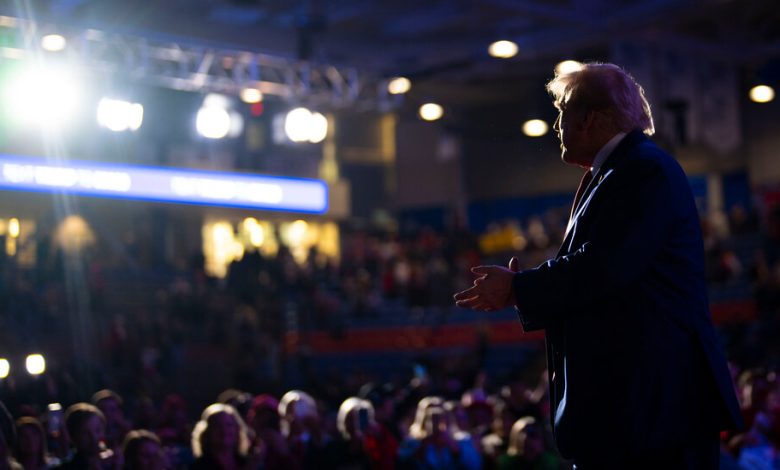How Trump Has Used Fear and Favor to Win Republican Endorsements

On his last day as president on Jan. 20, 2021, Donald J. Trump stood in a snapping wind and waved goodbye to relatives and supporters before he took his final flight on Air Force One back to Mar-a-Lago. No elected Republican of any stature showed up at Joint Base Andrews for the bleak farewell.
Mr. Trump, at that moment, was a pariah among Republican elites. The party’s leaders in the House and Senate, Kevin McCarthy and Mitch McConnell, blamed him for the Capitol siege. Party fund-raisers assured donors they were done with him. On conference calls, House Republican leaders contemplated a “post-Trump” G.O.P.
Today, three years after Jan. 6 and more than a week before the Iowa caucuses, Mr. Trump has almost entirely subjugated the elected class of the Republican Party. As of this week, every member of the House Republican leadership is formally backing his campaign to recapture the White House.
Mr. Trump has obsessed over his scorecard of endorsers, according to more than half a dozen Trump advisers and people in regular contact with him, most of whom insisted on anonymity to describe private conversations.
He sees gathering the formal endorsements as a public validation of his triumphant return that serves his strategy of portraying himself as the inevitable victor. He calls endorsements the “E word”; when lawmakers merely say they “support” him, he considers it insufficient and calls that the “S word.” In recent weeks, his allies have told lawmakers that Mr. Trump will be closely watching who has and hasn’t endorsed him before the Iowa caucuses on Jan. 15.
Mr. Trump works his endorsements through both fear and favor, happily cajoling fellow politicians by phone while firing off ominous social media posts about those who don’t fall in line quickly enough. In October, he felled a top candidate for House speaker, Representative Tom Emmer, by